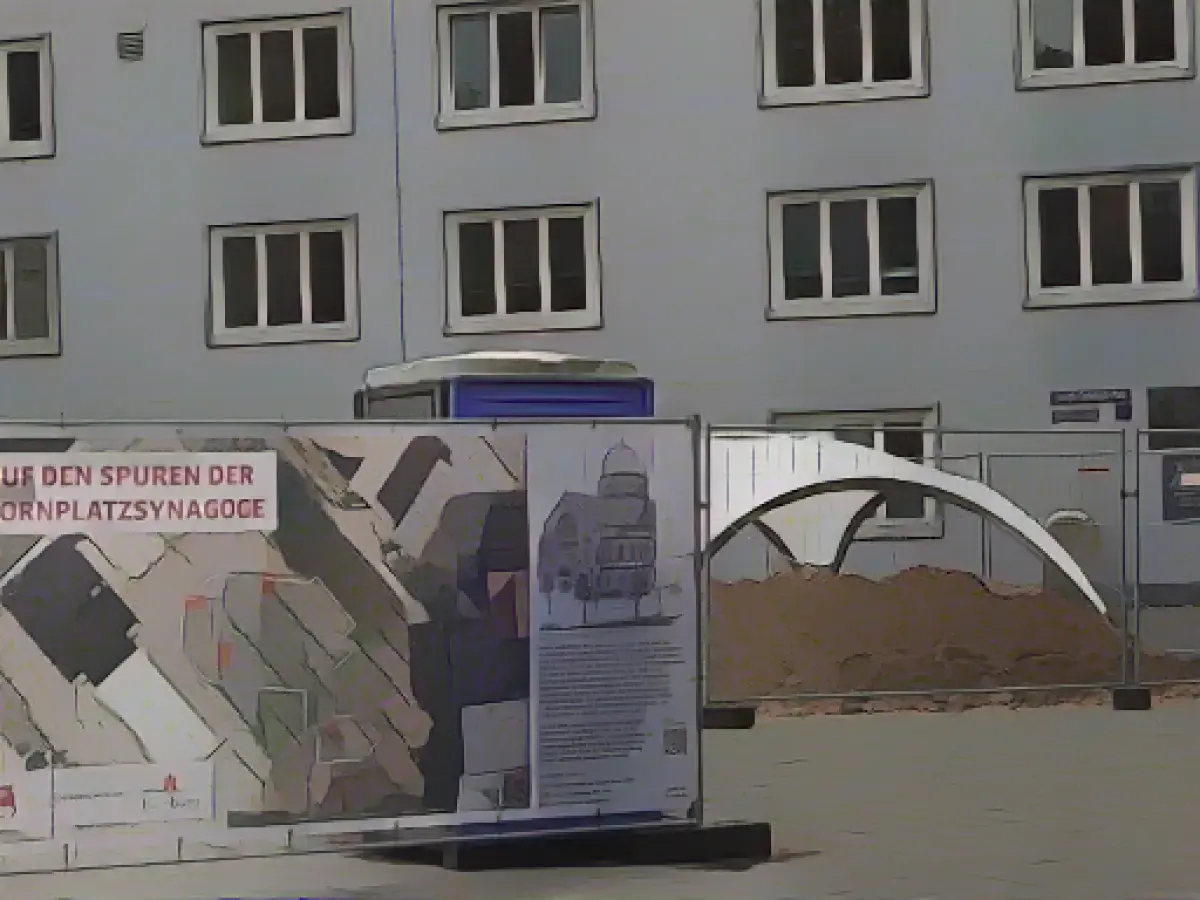Search for remains of Bornplatz synagogue ended
The Hamburg Archaeological Museum's excavation work for the remains of the Bornplatz synagogue has brought surprising finds to light. "The excavation on Joseph-Carlebach-Platz has been completed and was a complete success," Hamburg's state archaeologist and director of the Archaeological Museum, Rainer-Maria Weiss, told the German Press Agency. "We have found a great deal."
Now, after decades of various rumors, it is finally clear: "The entire basement with the foundation of the synagogue is probably still completely and fairly well preserved in the ground, as if cut off with a razor blade," said Weiss. The colors of the synagogue and the appearance of the huge windows of the house of God were also unclear for a long time, as there were only black and white photos or re-colored pictures. "The exterior was a red brick building with a very fine color structure."
Four search sections - each 15 square meters in size - have been created since the beginning of September. "In all four test sections, we found well-preserved building fabric of the synagogue," said Weiss. "For example, we discovered a very well-preserved storage cellar and a kitchen with complete, beautiful, patterned tiles."
In a former outbuilding, the experts uncovered a so-called mikvah. "You have to descend seven steps to enter this immersion bath, which we found perfectly preserved," explained Weiss. "The basin had snow-white, high-gloss tiles." Individual outstanding finds would now be salvaged and the cuts then backfilled.
The investigation was commissioned by the Senate Chancellery. "The aim is to gain insights into the remains of the foundations of the former synagogue and their condition," explained Hamburg's mayor Peter Tschentscher (SPD) at the start of the work. "These findings will be incorporated into the further urban planning and architectural process to create a new central location for Jewish life and culture in Hamburg."
According to the state archaeologist, the results of the excavations will be an exciting mental exercise for the architects. "They have to think about how to integrate parts of this original building into the future new development, regardless of what it will be."
Preparations are currently underway between the city and the Jewish community in Hamburg so that the architectural competition process can begin soon, according to a spokesperson for the Senate. "A specific date for this has not yet been set. However, preparations are well advanced."
When it was inaugurated in 1906, the Bornplatz Synagogue in the Grindel district not far from the university was the largest Jewish place of worship in northern Germany. During the November pogroms in 1938, National Socialists set fire to the building. A year later, they forced the Jewish community to demolish the synagogue at their own expense. The Jewish community in Hamburg would like to rebuild the synagogue and is supported by the Hamburg Parliament, the Senate and the German Bundestag.
During the archaeological investigations, the floor mosaic by Margrit Kahl laid on Joseph-Carlebach-Platz - it has been a reminder of the Bornplatz Synagogue since 1988 - had to be partially removed in the area of the search cuts, as Weiss said. However, it will be fully restored once the preliminary investigation has been completed.
The archaeological findings have shed light on the religious history of the area, as the excavation revealed a well-preserved mikvah, a vital ritual bath in Jewish tradition. The investigation into the remains of the Bornplatz synagogue also provides valuable insights for future architects, as they will need to incorporate parts of the original building into a new central location for Jewish life and culture in Hamburg.
Source: www.dpa.com








